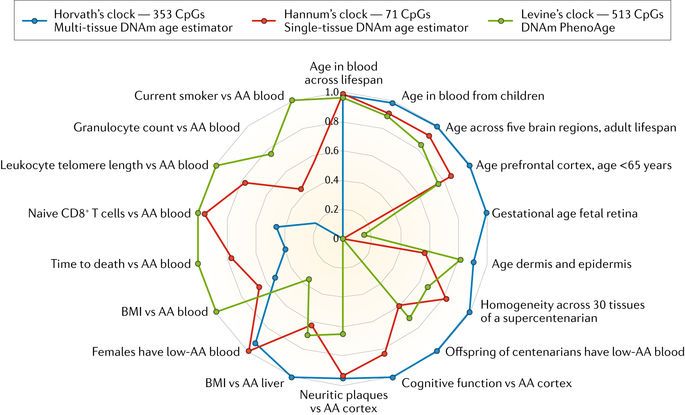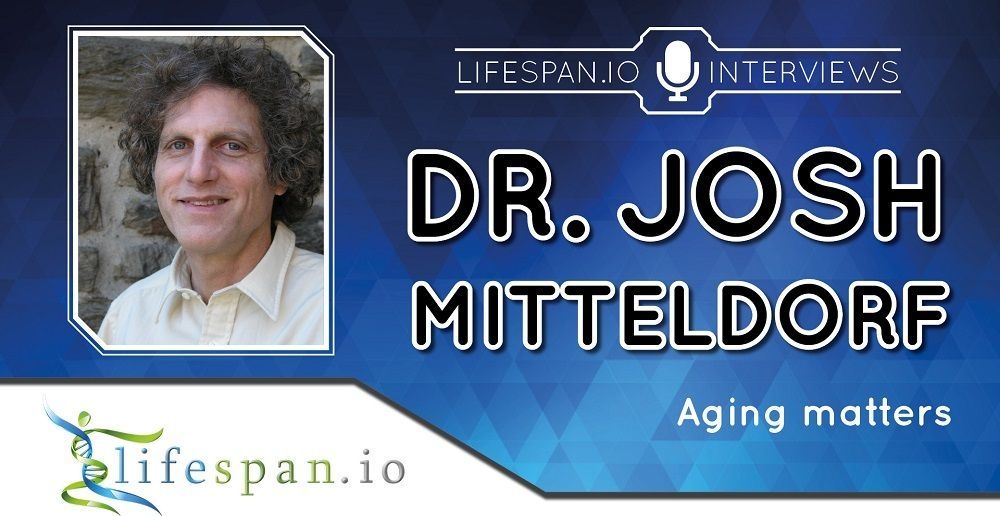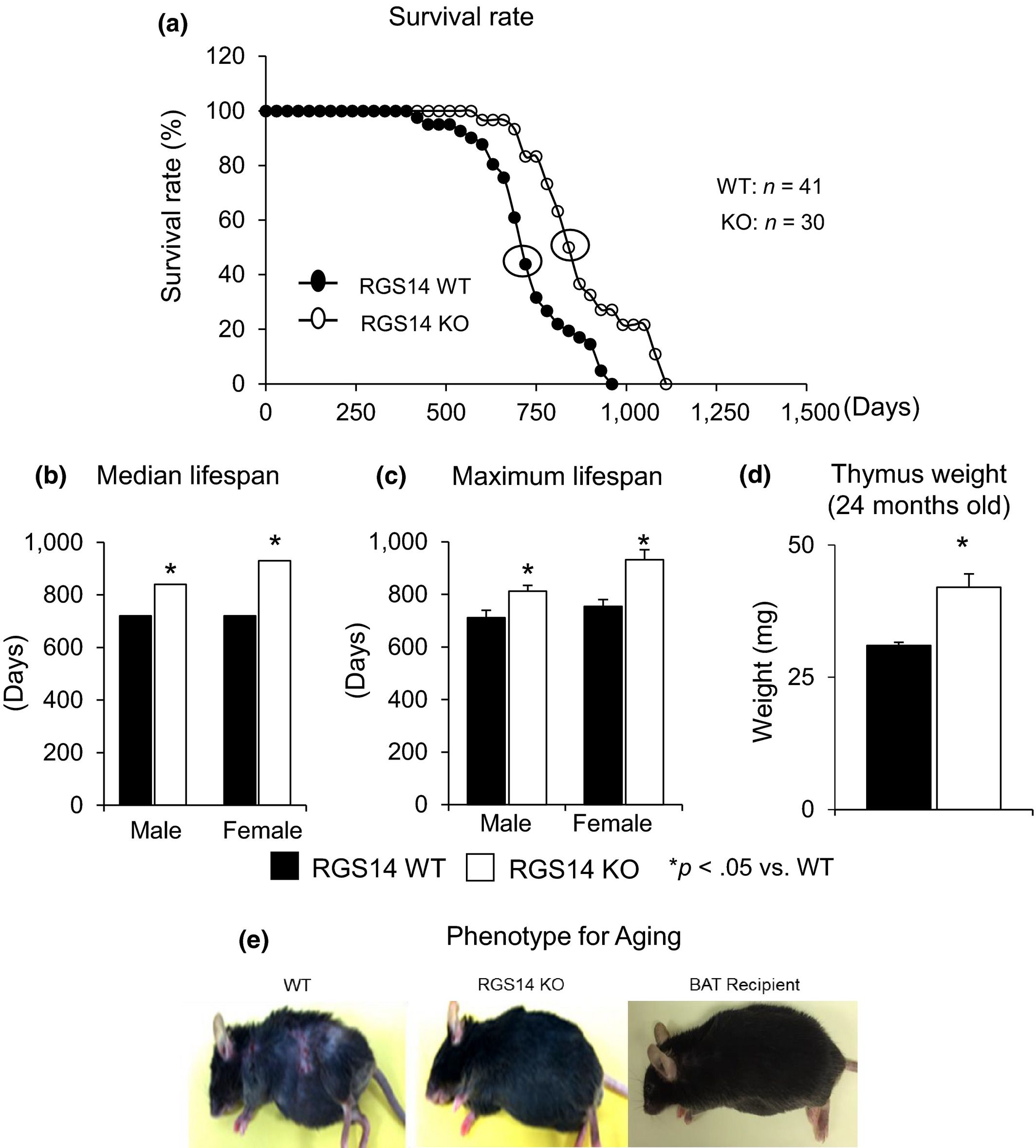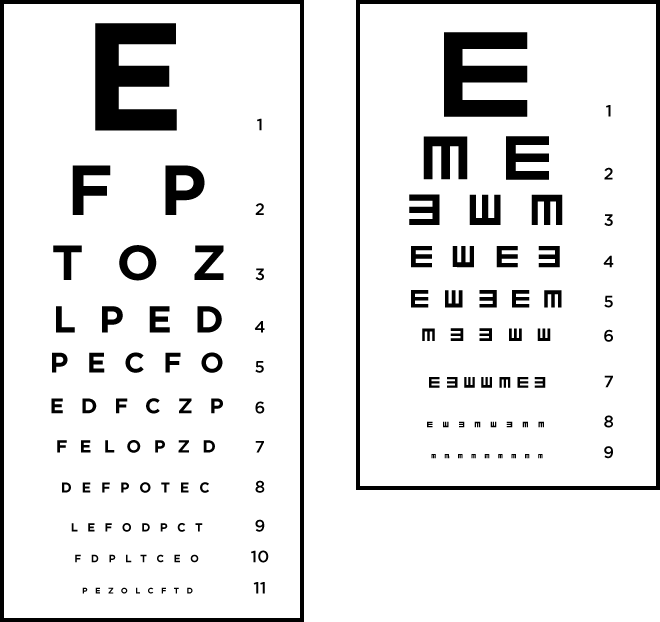Archive for the ‘life extension’ category: Page 489
Apr 18, 2018
DNA methylation-based biomarkers and the epigenetic clock theory of ageing
Posted by Manuel Canovas Lechuga in categories: biotech/medical, genetics, life extension
Biomarkers of ageing based on DNA methylation data enable accurate age estimates for any tissue across the entire life course. Horvath and Raj review the development of these ‘epigenetic clocks’ and how they link to biological ageing.
Apr 18, 2018
YC Bio Providing Lab Space for Biotech Startups Working on Aging
Posted by Steve Hill in categories: biotech/medical, life extension, space
Y Combinator announces the first wave of support for biotech startups working on aging.
Earlier this year, the Y Combinator (YC) community showed interest in supporting biotechnology focused on healthspan and age-related disease. The YC community is an influential part of the Bay Area technology-focused industry in California. It was great to hear that it was planning to support biotech startups working on aging through its YC Bio program.
The first area we’re going to focus on is healthspan and age-related disease—we think there’s an enormous opportunity to help people live healthier for longer, and that it could be one of the best ways to address our healthcare crisis.
Continue reading “YC Bio Providing Lab Space for Biotech Startups Working on Aging” »
Apr 18, 2018
Bioquark Inc. — Cracking the Entrepreneur Code Podcast — Ira Pastor
Posted by Ira S. Pastor in categories: aging, biotech/medical, business, disruptive technology, DNA, economics, finance, genetics, health, life extension
Tags: anti-aging, bioquark, biotech, business, health, invention, Venture Capital, wellness
Apr 18, 2018
A Review of Stem Cell Therapies for Alzheimer’s Disease
Posted by Steve Hill in categories: biotech/medical, life extension, neuroscience
A new open access paper takes a look at the potential of regenerative medicine for the treatment of Alzheimer’s disease [1]. The review covers approaches such as spurring the production of new neurons and transplanting new neurons while taking a look at the disease-modeling approaches and techniques that science is now using to refine approaches to treating Alzheimer’s.
The authors here investigate how induced pluripotent stem cells (iPSCs) are contributing to the growing knowledge in the field by allowing researchers to create increasingly refined models of Alzheimer’s disease. A current problem we have is that animal models do not emulate the disease closely enough to lead to translational therapies that work in humans; this is why so many new medicines that work in mice fail in clinical trials. The review takes a look at the challenges and how science is working to develop better models.
Introduction
Continue reading “A Review of Stem Cell Therapies for Alzheimer’s Disease” »
Apr 17, 2018
Dr. Josh Mitteldorf – Are we on the verge of major breakthroughs in anti-aging science?
Posted by Steve Hill in categories: life extension, science
Today we bring you an interview with author and researcher Dr. Josh Mitteldorf who runs the aging research blog Aging Matters.
Dr. Josh Mitteldorf is an evolutionary biologist and a long-time contributor to the growing field of aging science. His work in this field has focused on theories of aging. He asks the basic question: why do we age and die? This can seem like a silly question to people encountering it for the first time because most of us would quickly respond, “Because that’s just how it is; all creatures age and die eventually as their bodies wear out.”
Essentially, Josh is saying, “Not so fast. In fact, a lot of creatures don’t age and die. Humans, as well as most other animals that do age and die, are programmed to do so. So, humans are programmed to die in much the same way that salmon are programmed to die after spawning.”
Apr 17, 2018
Bioquark Inc. — Connecting The Resilient — Spinal Cord Injury Podcast
Posted by Ira S. Pastor in categories: aging, bioengineering, biological, biotech/medical, disruptive technology, DNA, genetics, health, life extension, neuroscience
Apr 16, 2018
Using Peptides to Regrow Human Teeth
Posted by Steve Hill in categories: biotech/medical, life extension
Researchers at the University of Washington have developed a product that uses peptides to promote the regrowth of tooth enamel in order to treat dental cavities.
An end to tooth decay?
There are multiple regenerative medicine approaches being developed to combat tooth decay; for example, earlier this year, we discussed a method that uses gsk3 antagonists to spur the regeneration of teeth. This is a similar approach that is showing promising results.
Apr 15, 2018
Enhanced longevity and metabolism
Posted by Manuel Canovas Lechuga in categories: biotech/medical, life extension
Disruption of the regulator for G protein signaling 14 (RGS14) knockout (KO) in mice extends their lifespan and has multiple beneficial effects related to healthful aging, that is, protection from obesity, as reflected by reduced white adipose tissue, protection against cold exposure, and improved metabolism. The observed beneficial effects were mediated by improved mitochondrial function. But most importantly, the main mechanism responsible for the salutary properties of the RGS14 KO involved an increase in brown adipose tissue (BAT), which was confirmed by surgical BAT removal and transplantation to wild‐type (WT) mice, a surgical simulation of a molecular knockout. This technique reversed the phenotype of the RGS14 KO and WT, resulting in loss of the improved metabolism and protection against cold exposure in RGS14 KO and conferring this protection to the WT BAT recipients. Another mechanism mediating the salutary features in the RGS14 KO was increased SIRT3. This mechanism was confirmed in the RGS14 X SIRT3 double KO, which no longer demonstrated improved metabolism and protection against cold exposure. Loss of function of the Caenorhabditis elegans RGS‐14 homolog confirmed the evolutionary conservation of this mechanism. Thus, disruption of RGS14 is a model of healthful aging, as it not only enhances lifespan, but also protects against obesity and cold exposure and improves metabolism with a key mechanism of increased BAT, which, when removed, eliminates the features of healthful aging.
Apr 15, 2018
A Clinical-Grade Implant May Cure Blindness!
Posted by Nicholi Avery in categories: biotech/medical, life extension
A clinical-grade retinal implant made of human #embryonic stem cell (#hESC)–derived RPE grown on a synthetic substrate has been developed by Kashani and team. The progressive binding disease that causes loss of the retinal pigment epithelium (RPE) of the eye is known as #Non-neovascular age-related macular degeneration (#NNAMD). Currently there are only preventative measures that can be taken but there is no effective treatment. Some preventative measures include quitting smoking and the use of specific nutritional supplements to reduce the risk of developing NNAMD. The implant was not only shown to be safe in a first-in-human phase 1 clinical trial in five patients with advanced NNAMD, but also well tolerated. Plausible therapeutic effects on visual clarity were reported in the experimental results, indicating that this approach may be beneficial for treating retinal disorders involving #RPE loss.
















